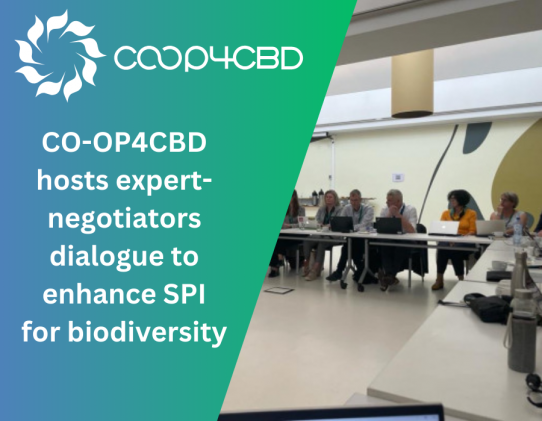
CO-OP4CBD hosts expert-negotiators dialogue to enhance science-policy interface for biodiversity
On 2 October CO-OP4CBD’s partner RBINS (Institute of Natural Sciences), organised an Expert-Negotiators Dialogue which focused on exchanges on technical and scientific issues between experts and negotiators to the Convention on Biological Diversity (UN CBD). The event served as a platform for 40 experts and negotiators from European Union Member States and associated countries to deliberate upon critical technical and scientific issues related to the science-policy interface for biodiversity.
Institutions from Belgium, Italy, the Netherlands, Denmark, France, Spain, Czech Republic, Estonia and the experts represented different sectors of society, including NGOs, academia and the private sector. Prior to the event, the selected experts had already collaborated during a workshop in Paris on 18-19 September, which was led by the Foundation for Research on Biodiversity.
The participants in the dialogue were separated into thematic groups, which covered the topics of the then upcoming SBSTTA-25:
-
Biodiversity indicators and monitoring
-
Sustainable wildlife management
-
Invasive alien species
-
Biodiversity and climate change
-
Plant conservation
During the dialogue, the experts had the opportunity to present their findings and suggestions to policy makers who discussed these same topics a couple of weeks later during SBSTTA 25 in Nairobi, Kenya. This allowed the negotiators to learn from practitioners and colleagues in the field about possible implementation challenges as well as the opportunities for mainstreaming (synergies and integration with other processes) and ask questions. The experts on the other hand, were able to influence policy-making by sharing the best available knowledge and best practices. The dialogue also gave the experts the opportunity to discuss, learn and provide input into the UN CBD process, thus supporting CO-OP4CBD’s objective of enhancing the science-policy interface.
It is important to note that this dialogue served as a complementary initiative to the workshop on Vilm Island organised by the German Federal government, which aimed to stimulate a focused discussion and allow for an in-depth preparation of the topic included in the SBSTTA-25 agenda.
The end result of the dialogue contained comprehensive presentations delivered by each working group, accompanied by the sharing of technical briefs. Interested readers can access the technical briefs here.
It is important to highlight that interested experts, including those from Civil Society Organizations (CSOs), are encouraged to actively participate in the ongoing call for experts, which remains open for applications. Additionally, European Union Member State Representatives are urged to mark their calendars for the upcoming training and network session for Clearing-House Mechanism National Focus Points scheduled to take place in Brussels from November 8 to 10.